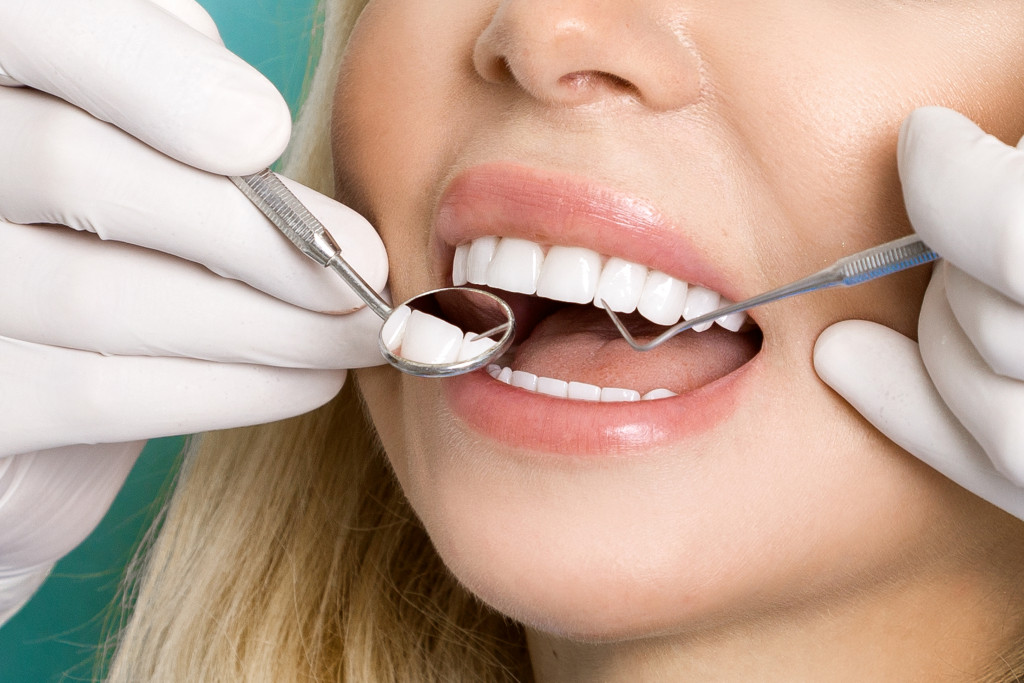- Gum disease can progress to periodontitis, where pockets are formed between teeth and gums that become harder to clean.
- Fortunately, gum disease is treatable at any stage with proper care and attention.
- Treatment options may include scaling/root planing procedures, antibiotics, surgery or dental fixtures such as implants or dentures/bridges.
- Taking preventative measures seriously is essential to good overall oral health and avoiding gum disease altogether.
Gum disease, also known as periodontal disease, is a serious condition that affects the gums and bone supporting your teeth. If left untreated, it can lead to tooth loss and other health problems.
Statistics show that more than 45% of American adults aged 25 and over have some form of gum disease, according to the National Library of Medicine. Periodontitis is especially common among adults aged 65 and above. In fact, over 70% of adults aged 65 and older have periodontal disease. Men are more likely to suffer from periodontal disease than women, with 48.4% reported as having the condition compared to 45.9% in women.
The good news is that gum disease is preventable and treatable with proper care and attention. In this article, we will discuss how to treat gum disease before it gets worse.
Understanding gum disease
Before diving into treatment options, you should first understand what gum disease is and how it develops. Gum disease starts with the buildup of plaque on your teeth. Plaque is a sticky film of bacteria that forms on your teeth throughout the day. When not removed by brushing and flossing, it hardens into tartar, which can only be removed by a dental professional.
When tartar builds up along the gumline, it can cause inflammation and infection in the gums. This early stage of gum disease is called gingivitis. Symptoms include redness, swelling, bleeding when brushing or flossing, and bad breath.
Consequences of neglected gum disease
If left untreated, gingivitis can progress into periodontitis — a more severe form of gum disease that affects the bone supporting your teeth. As the infection spreads deeper into the gums and bone, pockets form between your teeth and gums where even more bacteria can grow. Over time, these pockets become deeper and more difficult to clean.
Periodontitis can cause irreversible damage to your teeth and gums if not treated promptly. Tooth loss is also a common outcome in advanced cases of periodontitis.
Treatment options for gum disease
The good news is that gum disease is treatable at any stage. However, treatment options vary depending on the severity of the condition.
Mild gingivitis
If you have mild gingivitis (redness, swelling, bleeding), there are several steps you can take to improve your oral health:
- Brush twice a day: Use fluoride toothpaste to brush your teeth for two minutes each time.
- Floss daily: Clean between your teeth with floss or interdental brushes.
- Use an antibacterial mouthwash: Rinse with an antibacterial mouthwash after brushing and flossing.
- Quit smoking: Smoking weakens your immune system’s ability to fight infections like gum disease.
- Visit your dentist regularly: Your dentist will remove any tartar buildup during routine cleanings.

With these steps in place, most cases of mild gingivitis will clear up within two weeks.
Moderate gingivitis/early periodontitis
If you have moderate gingivitis or early periodontitis (pockets forming between teeth), more extensive treatment may be necessary:
- Scaling and root planing: Also known as a deep cleaning procedure, scaling removes tartar buildup below the gumline while root planing smooths out rough spots on tooth roots where bacteria tend to gather.
- Antibiotics: Your dentist may prescribe antibiotics if there are signs of infection present.
- Surgery: In some cases where pockets are particularly deep or stubbornly refuse to heal after scaling/root planing treatments have been administered repeatedly over months or years without success; surgery may be needed instead.
Advanced periodontitis
In advanced cases of periodontitis where significant damage has already occurred (tooth loss), treatment options become limited:
- Dental fixtures: If one or more teeth have been lost due to periodontal disease; dental implants are an option for replacement.
- Dentures/bridges: These removable prosthetics can replace multiple missing teeth at once but require regular cleaning/maintenance just like natural ones do!
- Bone grafts/guided tissue regeneration: These procedures are used when there isn’t enough bone remaining in order for dental implants or other restorative procedures to be successful.

Preventative measures
Preventing gum disease altogether requires consistent oral hygiene habits, such as:
- Brushing your teeth twice a day
- Flossing daily
- Rinsing with an antibacterial mouthwash
- Avoiding habits like smoking
- Eating healthy foods low in sugar/starches
- Visiting your dentist every six months
Gum disease is a serious condition that can lead to tooth loss and other health problems if left untreated. Fortunately, there are steps you can take to treat gum disease before it gets worse. From brushing twice a day and flossing daily to visiting your dentist regularly for deep cleaning procedures or even surgery in more severe cases, the options available will depend on the severity of your periodontal illness. Taking these preventative measures seriously will help keep your teeth healthy for life!




